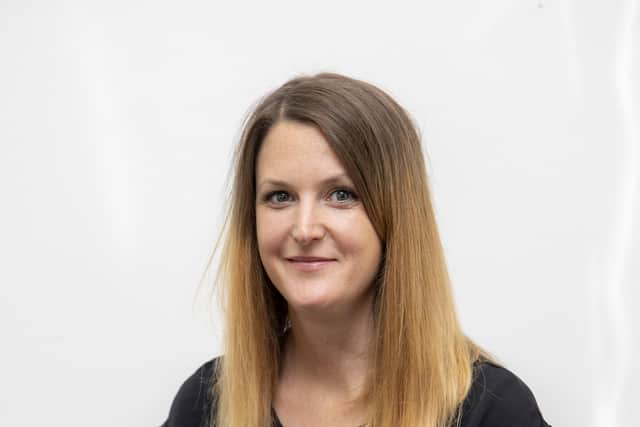Why real banking access scandal goes way beyond Nigel Farage: Kay Polley
Struggling with rising bills, and denied access to mainstream financial services, it’s hardly surprising that so many people then turn to pay-day lenders and loan sharks.
It’s estimated that a staggering three million people have used illegal money lenders in just the past three years.
Advertisement
Hide AdAdvertisement
Hide AdThis isn’t only about individuals. Small and medium sized businesses (SMEs) are the lifeblood of the UK economy, providing up to 60 per cent of private sector jobs.


Yet thousands of SMEs struggle to secure the finance that they need to invest, innovate and grow - especially if they are based outside London and the South-East, and even more so if they are in the most deprived areas of the country.
So why is this happening?
At the heart of the problem is the fact that the UK’s retail banking sector is so heavily dominated by a small number of very large banks. This is surprisingly unusual.
The banking sector in countries such as Germany or the US is far more varied, with cooperatives, credit unions, mutual banks and others all playing a much larger role.
Advertisement
Hide AdAdvertisement
Hide Ad

In the US, 59 per cent of people have a credit union account, compared to fewer than 5 per cent in the UK.
This is important, because large commercial banks serve particular functions and work well for some customers.
But their focus on maximising profit means that bigger loans to bigger businesses will always seem more attractive than smaller loans to SMEs, which might be more expensive to service and offer lower returns.
The scale and centralisation of the big banks means that they are never going to be the best at understanding the local needs and business opportunities of different communities around the country.
Advertisement
Hide AdAdvertisement
Hide AdPurpose-driven finance institutions such as credit unions, Community Development Finance Initiatives (CDFIs), ethical banks and local building societies operate at different scales and with different priorities.
As such, they are often well-placed to meet the needs of those excluded by the bigger banks, and to achieve broader social, environmental, and economic good through their lending.
But things could be changing. It’s encouraging to see two cross-party groups of MPs - the All Party Parliamentary Groups on Personal Debt and on Fair Business Banking - coming together to force this issue up the political agenda.
A parliamentary roundtable discussion next Monday will bring together a wide range of MPs, peers, leaders from both mainstream and purpose-driven finance institutions, and civil society organisations to discuss proposals for a Fair Banking Act which would increase transparency and accountability.
Advertisement
Hide AdAdvertisement
Hide AdA Fair Banking Act, being championed by the Fair Banking for All Campaign, could prove transformative in diversifying the UK’s banking sector. In the face of a cost-of-living crisis and a struggling economy, this is an idea whose time has come.
It is an opportunity to boost investment in the real economy, to support small businesses, and to tackle the scandal of financial exclusion, helping to ensure that no-one in today’s Britain resorts to a loan shark because they have nowhere else to turn.
Kay Polley is co-head of campaigns for the Finance Innovation Lab.